Microsoft in 2011: what to expect
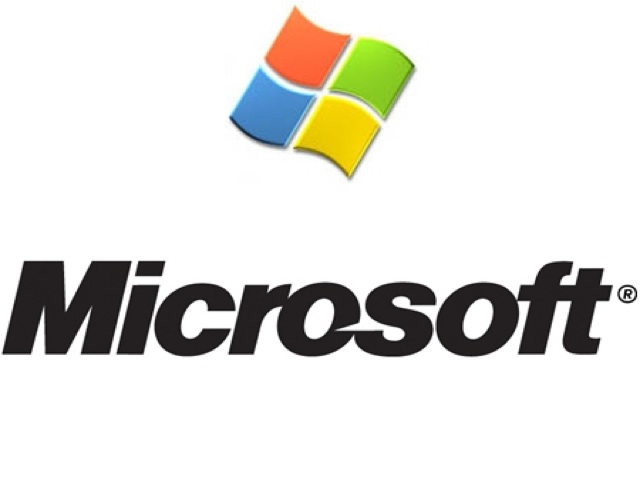
2010 has been a landmark year for Microsoft with success after success.
Windows 7: now the fastest-selling operating system ever. Kinect; 2.5 million sold in 25 days. IE9; catching up to Chrome and Firefox on speed and standards support.
The Office Web Apps from Office 2010 are built into the new Facebook messaging system. Even Windows Phone 7 has turned out well and Bing has been gaining users (in October it had nearly as many visitors as Wikipedia, according to Compete, putting it just outside the top five websites – in the US, at least).
But what happens next year, with Ray Ozzie gone, Chrome OS hitting the market and tablets galore: a rumoured spring release for the iPad 2, the BlackBerry PlayBook by the second half of the year, HP promising webOS tablets and everyone else building on Android with netbook-friendly Gingerbread.
Was this year a turning point or a flash in the pan for Microsoft?
Don't expect Microsoft to break up, go private, buy Adobe or sack Steve Ballmer.
Don't expect the mythical Xbox 720 to finally arrive.
Sign up for breaking news, reviews, opinion, top tech deals, and more.
Do expect Windows 8, IE9, lots of Windows Phone updates and a slew of tablets using various flavours of Windows (plus up to six more Microsoft stores, including New York, but probably not London).
IE9
We're expecting Microsoft to launch the release candidate of IE9 not long after CES in January with the final version following at Microsoft's MIX Web developer conference in April.
We could see some small changes to the look of the interface and the RC will have the 'do not track' option to sign up to lists of ad services you don't want to track you from site to site, but there won't be support for any of the technologies such as WebGL that aren't yet standardised.
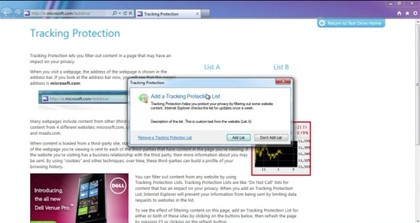
NEW UI: This shot of the new Tracking Protection feature in IE9 also seems to show slight differences to the user interface, with squared-off tabs
The excellent performance, full hardware acceleration and good HTML5 support will make IE9 successful, but while this puts Microsoft back in the browser game Chrome and Firefox will carry on rolling out much faster updates.
More importantly for Microsoft, the HTML5 support in IE9 is crucial for new services like Bing Maps, Office Web Apps and Office Live improvements and the cloud connection and synchronisation planned for Windows 8.
Think of IE9 as a stepping stone to the cloud; for businesses first, but for consumers as well.
Windows Phone 7 updates
Talking of updates, Windows Phone 7 will get copy and paste early next year (along with support for the CDMA standard used on two key US mobile networks); details will be announced at CES.
There are rumours that a second update allowing some multitasking for third-party apps and more customisation is currently in beta and will be announced at Mobile World Congress in February; we've heard suggestions that updates might come as often as quarterly to help Windows Phone catch up to competitors, which could have the update shipping as soon as May.
At the same time, Microsoft will announce some updates to Silverlight in Windows Phone. The public beta of Silverlight 5 for the PC (which adds remote control, variable speed playback with pitch correction and hardware acceleration for H.264 video) is due in the second quarter of 2011 with the final version coming before the end of the year. If any of the Silverlight features for Windows Phone are the same, don't expect to see them on the phone much sooner than that.
Further down the line is a major update to the Windows Phone browser bringing "a major overhaul of standard support and new approaches to make significant advances in performance, power consumption and bandwidth utilization" and a "search experience [that] will be the key tool you [use to] plan and complete your day to day activities".
That sounds like Windows Phone 8 and while it might not arrive in 2011, the way the team is growing suggests Microsoft is going to keep giving Windows Phone the resources it needs to compete.
If the updates keep coming and the handset manufacturers can actually ship more devices, Windows Phone has a good chance of getting reasonable market share in 2011.
Windows tablets
We're not sure we can say the same for tablets. Although a handful of Windows 7 slates have appeared this year from smaller players (and – perhaps somewhat begrudgingly – from HP), expect to see bigger names producing tablets once Intel's Oak Trail processor is available.
The five-inch Ocosmos gaming tablet probably won't make it out of Korea; instead, from what Intel has been telling OEMs, we'll see 10-inch models that are less than half an inch thick, with proximity sensors, hardware acceleration for media that supports 1080p video and wireless connections that get you online in a couple of seconds.
Intel says there will be 35 Atom tablets coming out in the first half of next year, although some of them might run Chrome OS, Android or Meego rather than Windows 7, using Intel's Atom CE4100 system on a chip.
The power consumption of Atom means that it's going to be hard to match the battery life and weight of an iPad or an Android tablet (or what we hear about the PlayBook) on Windows 7 systems and our experiences with the ExoPC Slate show that the handwriting recognition that should be the killer feature on a Windows tablet needs a little more work on capacitive screens.
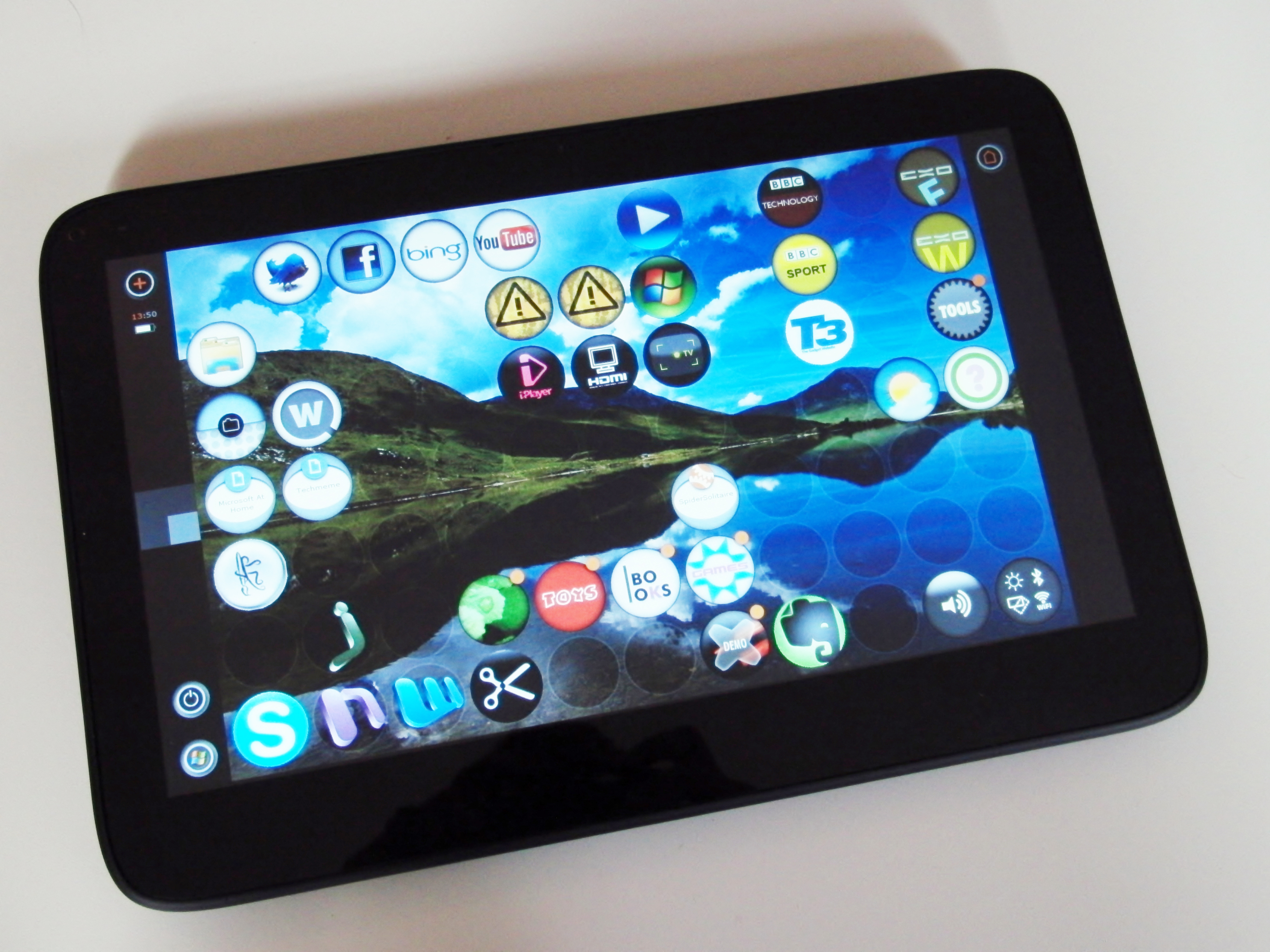
PLAYING CATCH-UP: Even the nicest Windows 7 slates are heavier and have less battery life than the iPad or Android tablets; will 2011 tablets do better?
But if what you want is the power of Windows to run a full browser and play any kind of media, then one tablet rumour we've heard makes sense.
We might or might not see TV services on Xbox next year to compete with Google TV and Apple TV, but we will see Windows Media Center set-top boxes from Acer and Asus, running on Windows Embedded, delivering a mix of broadcast and internet TV, plus Netflix – and maybe even Sky.
And one of the key features in the new version of Windows Embedded (along with a much lower price) is multi-touch support.
With Microsoft keeping such tight control over the Windows Phone form factor we don't expect to see a Windows Phone tablet next year, but multi-touch tablets running Windows Media Center Embedded are a possibility.
The Media Center interface is ideal for fingers and you can put a limited number of apps and games on it already.
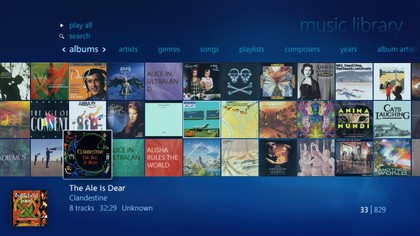
ON THE BOX: The familiar Media Center interface will be in set-top boxes; and maybe on Windows Embedded tablets as well?
But unless whatever Microsoft comes out with here is really exciting, we think it will struggle to compete on the tablet front – at least until Windows 8 comes along.
Windows 8
Given how little we know about Windows 8 (it's all from rumours, leaks and job adverts) it's impossible to say how significant it will be, although Steve Ballmer has called it Microsoft's "riskiest product bet".
At this point we're predicting that we'll see the Windows 8 beta in the autumn of 2011 and the final version in the late summer of 2012 – three years after Windows 7.
The most recent rumours give the 64-bit version its own 3D interface on systems with powerful enough graphics chips to go with the Kinect-style gesture control promised in the lead slides and this job ad promises "groundbreaking features" for making Windows the "most stable and trustworthy mass-market OS".
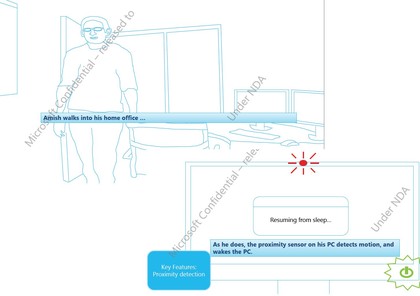
MOTION SENSING: Walk up to a Windows 8 PC and it will know you're there; we've seen Kinect-style gestures working with PCs in the Microsoft envisioning lab already
The danger is that instead of doing something bold and innovative, the Windows team succumbs to incrementalism while Chrome and webOS move towards lightweight, cloud-enabled systems that work more like an always-on phone, but the leaks claim Windows 8 will have much faster hibernation and resume (in just a few seconds) and use the cloud to back up settings and app details as well for an app store, so we'll just have to wait and see.
Certainly, we don't see either Chrome or webOS going mainstream in 2011. Except on tablets, where portability and battery life trump compatibility and power, we don't think Windows has more to worry about from competing operating systems next year than it did this year; Chrome OS is obviously incomplete and even though it will evolve quickly, it's still completely dependent on you being online.
And while tablets might displace some situations where you'll no longer take a laptop with you, for most people they'll be a second or third computer. But if they're as popular a second computer as some are predicting, Microsoft is going to look rather late to the party until Windows 8 comes along.
Microsoft is going to take a beating in the home storage market, too. Despite gutting the product by removing the Drive Extender disk replication feature from the next version, Microsoft is still promising to ship the Vail updates to Windows Home Server in the first half of 2011 (along with the new versions of Small Business Server that are the reason for dropping Drive Extender) and we'll see the first Vail home servers at CES.
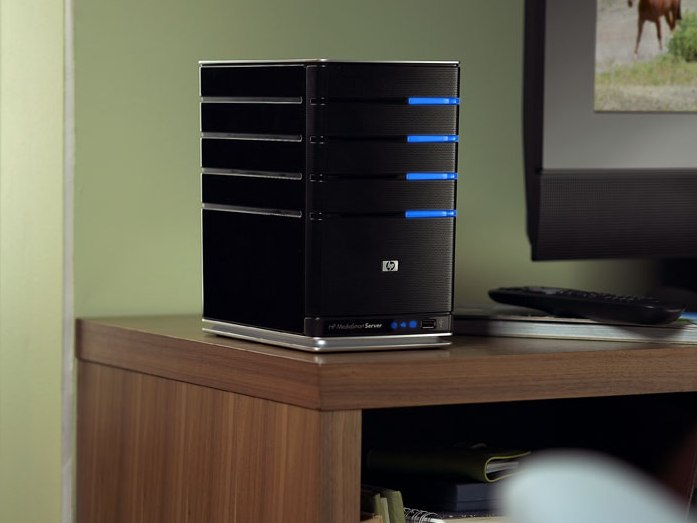
Although Steve Ballmer said he'll look into the issue, it doesn't seem likely that Drive Extender will return and unless one of the PC manufacturers does something really innovative with it, Vail looks like a fail.
Life without Ozzie
Long term, it's an open question as to how Microsoft will fare without Ray Ozzie (and indeed without Robbie Bach, ex head of the entertainment and devices division).
Ozzie's influence has been most obvious in the business products, where the move to the cloud is now entrenched in Microsoft consciousness, but he's also been responsible for helping prioritise user experience – the principle that's made Kinect more significant than Surface and that's made Windows Phone and a truly engaging device to use.
And the social computing FUSE Labs team he set up – which has been coming out with the kind of innovative web tools (such as Montage) that you don't usually associate with Microsoft – is now part of Microsoft Research, although with the same team in place.
Bach's teams produced the Xbox, Kinect and Windows Phone – but then they also ran Windows Mobile into the ground, shipped the DOA Kin phone, allowed the red ring of death to happen and disappointed everyone by making us think Courier was real (or even possible).
But those departures aren't likely to have much effect on the products we see in 2011, which were already well under way before either departure.
It's the direction of the company over the next five years that might falter without them. For the next twelve months, Microsoft still looks good but it also faces plenty of challenges.
------------------------------------------------------------------------------------------------------
Mary (Twitter, Google+, website) started her career at Future Publishing, saw the AOL meltdown first hand the first time around when she ran the AOL UK computing channel, and she's been a freelance tech writer for over a decade. She's used every version of Windows and Office released, and every smartphone too, but she's still looking for the perfect tablet. Yes, she really does have USB earrings.